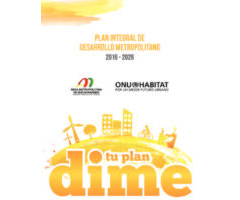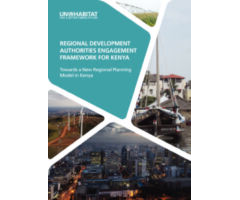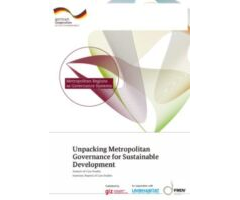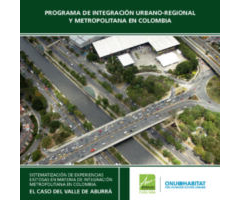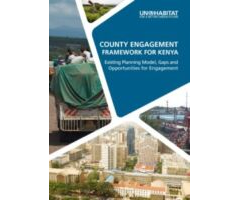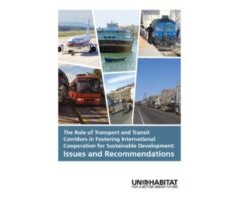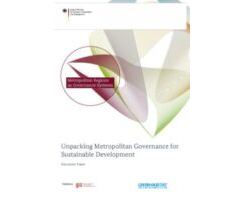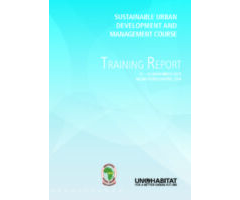Metropolitan Management

Cities and urban dynamics are evolving rapidly around the world. Between 2000 and 2015, cities grew by 1.5% a year in terms of area (EC OECD, 2020). Due to that expansion, many cities have grown beyond the boundaries of their central municipality configuring bigger and denser metropolises, understood as the city and its commuting zone, which consists of suburban, periurban and rural areas economically and socially linked to the city.
Metropolises of the 21st century are characterized for having strong interdependencies from economic, social, and environmental perspectives which need to be managed in an integrated way, based on functional territories and across both jurisdictional boundaries and the urban-rural continuum. UN-Habitat integrative approach for metropolitan management involves local, sub-national and national governments participation in metropolitan governance, metropolitan policies and legislation, metropolitan planning, and metropolitan finance and economics.

UN-Habitat has established the MetroHUB initiative for supporting sustainable development in world’s metropolises and regions, by tailoring innovative metropolitan solutions to local contexts and informing metropolises’ decision-making processes with latest research and data. UN-Habitat work on metropolitan and regional management includes: capacity development of metropolitan and regional authorities; formulation of metropolitan sectoral policies; drafting and improvement of metropolitan legal frameworks; strengthening of supramunicipal governance schemes; designing metropolitan and regional planning instruments; and innovating on financing mechanisms at metropolitan and regional scales.
Specific objectives of the MetroHUB initiative are: i) Developing and sharing information as well as enhancing capacity development and learning; ii) Establishing a strong partnership with relevant networks and creation of a platform for linking several networks; iii) Developing and gathering practical tools and cases studies, with special reference to policies, legislation, governance, planning and finance aspects: iv) Building up a dialogue among diverse actors such as professionals, civil servants, academia, civil society and private sector; v) Promoting a shared vision and consensus on crucial projects for metropolitan development; and vi) Fostering vertical and horizontal collaboration to improve metropolitan development and ensure a participatory approach for decision making by including civil society and especially vulnerable groups such as women, youth and disabled.
Services provided by MetroHUB, namely trainings, field visits, technical assistance, normative support, knowledge exchange, studies, among other, have diverse scopes and time frames according with counterparts and beneficiaries needs and requirements. These services have already been applied, among others, in the following regions and countries:
En el 2016 el Área Metropolitana de Bucaramanga se consolidará como un territorio próspero que ha…
Published On 1 June 2016
Downloads 18
Views 235
This publication addresses fundamental issues in regional development giving emphasis on operational…
Published On 1 June 2016
Downloads 17
Views 229
This case study analysis forms part of the publication series “Unpacking metropolitan governance”…
Published On 1 June 2016
Downloads 26
Views 230
Tendencias de largo plazo sobre conurbación y desarrollo urbano muestran que en vez de dispersarse aleatoriamente…
Published On 1 June 2015
Downloads 14
Views 132
This document discusses the existing legislation relating to Urban and Regional Planning in Kenya with…
Published On 1 June 2015
Downloads 63
Views 236
This paper aims at defining transit and transport corridors, outline factors influencing development…
Published On 1 June 2015
Downloads 285
Views 513
Urbanization is a megatrend which will significantly shape the economic, political and social transformation…
Published On 1 June 2015
Downloads 233
Views 719
To enhance the current capacity of the counties and the urban sector to effectively and efficiently deliver…
Published On 1 June 2015
Downloads 20
Views 93


